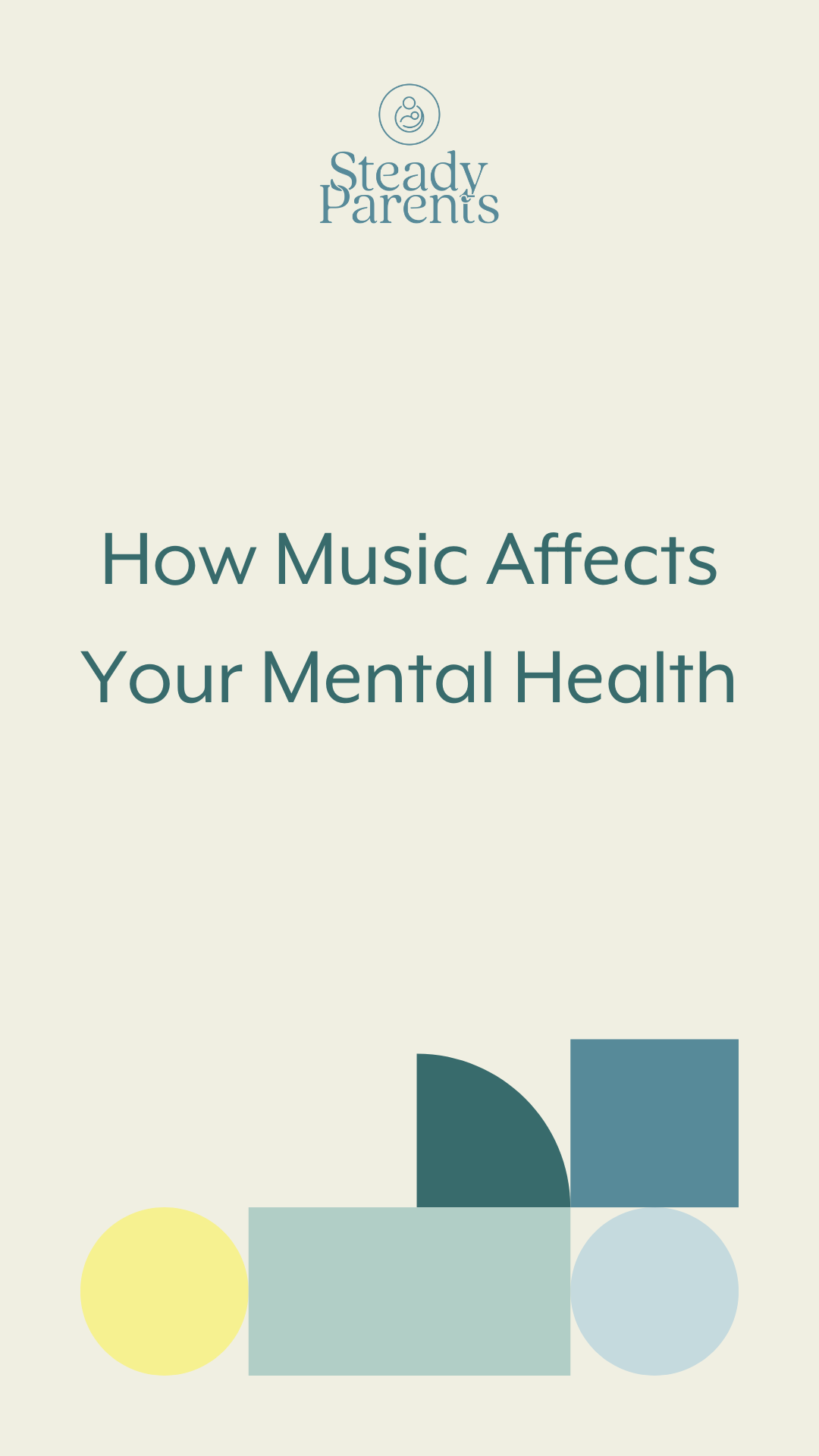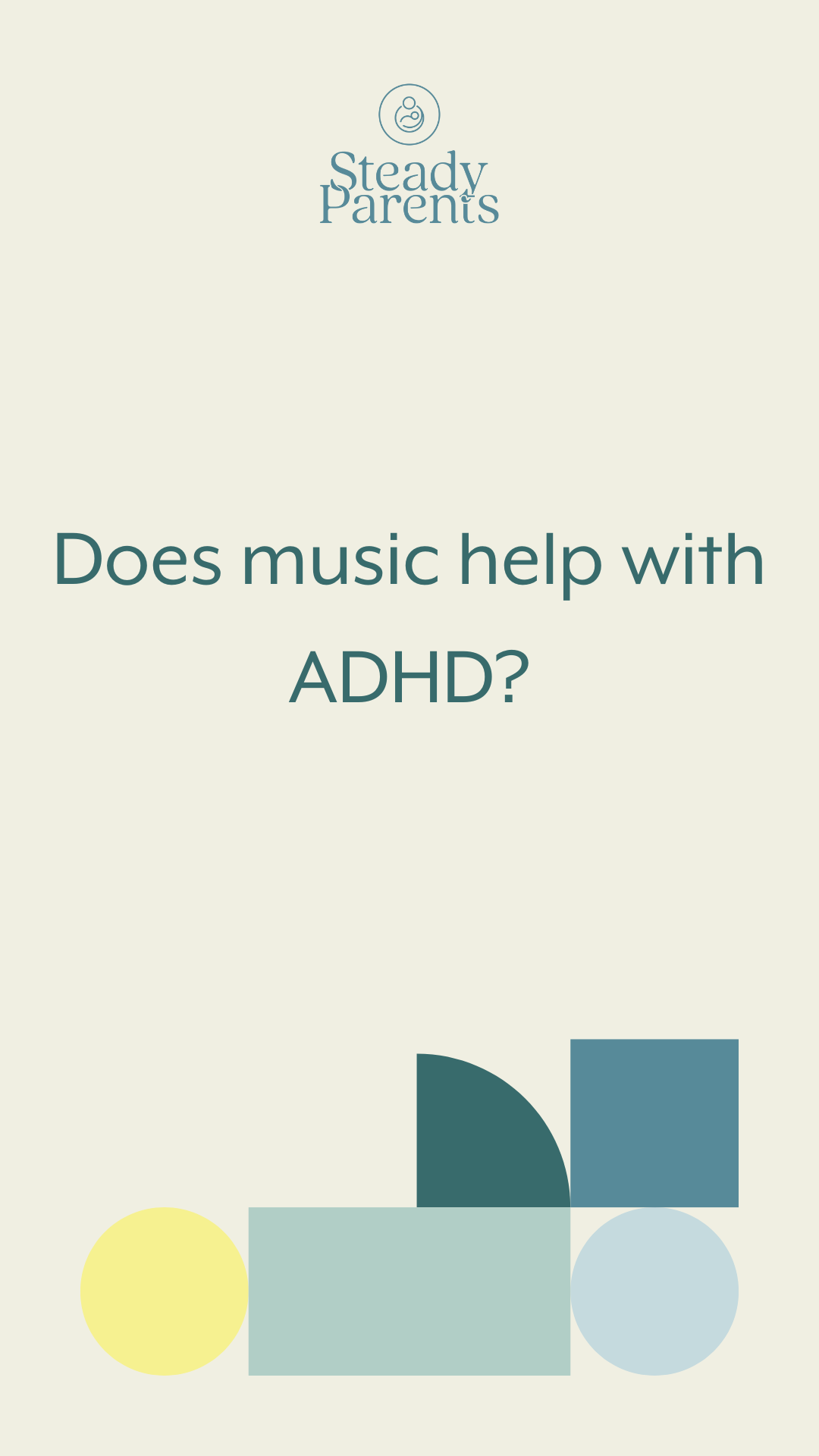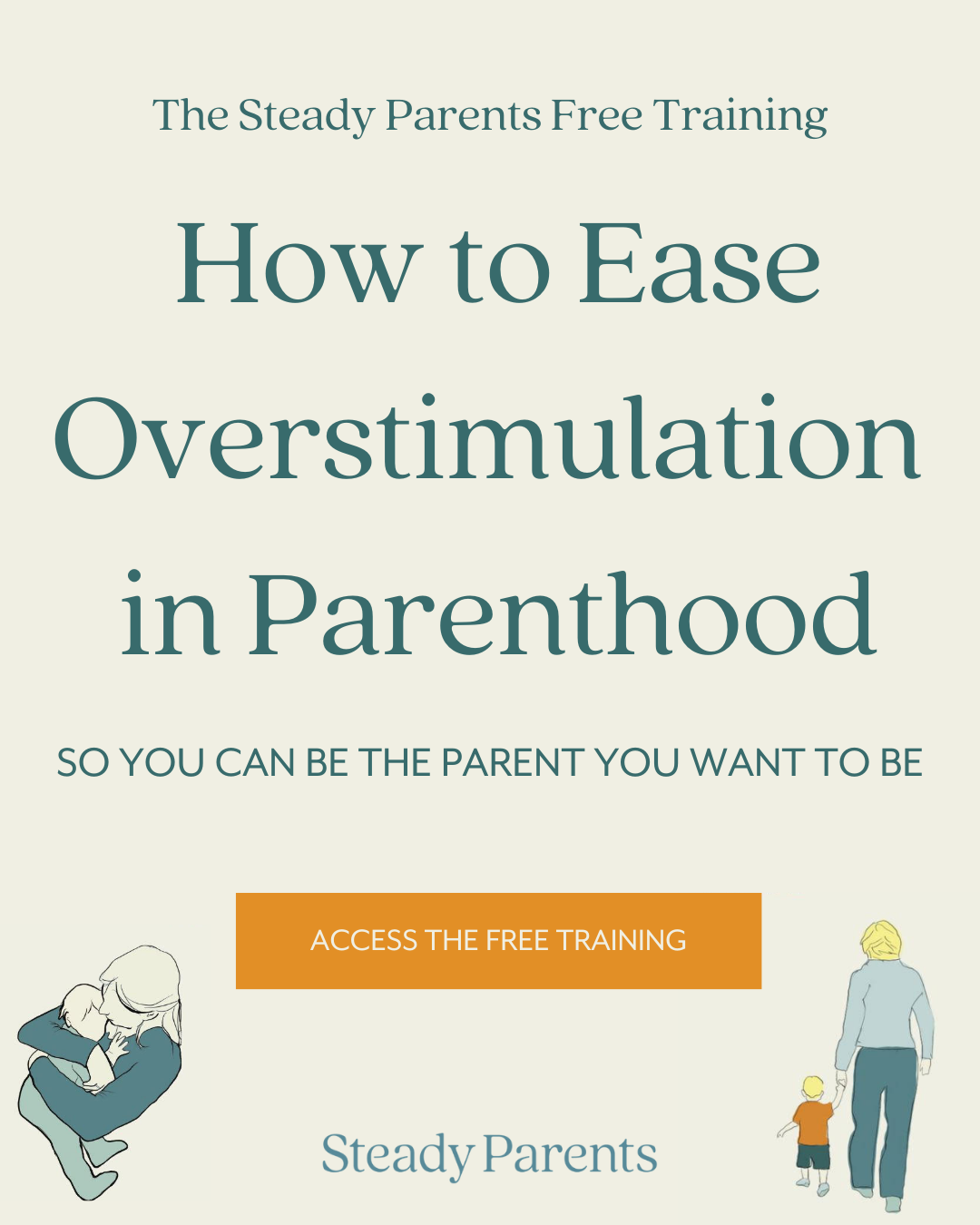Music and Mental Health: How Predictable Rhythms Help with Overstimulation
In the whirlwind of parenthood, where sensory stimuli in the form of noise abound and demands never seem to cease, finding moments of calm can feel like a distant dream.
As an occupational therapist specializing in supporting parents navigating overstimulation and sensory overload, I'm excited to talk more about the relationship between music and mental health, and how parents can use music as a tool when they are feeling overstimulated.
In this blog post, we'll explore the profound effects of music on mental health, its role in enhancing focus and mood regulation, and how predictable rhythms can serve as a powerful tool in soothing overstimulation.
How Music Affects Your Mental Health
Music possesses a remarkable ability to influence our mental and emotional state. It can evoke a wide range of emotions, from joy and relaxation to introspection and motivation. Understanding how music impacts our mental health is key to harnessing its therapeutic benefits effectively.
What is the relationship between music and focus?
Music has been shown to enhance focus and concentration, particularly when paired with tasks that require cognitive engagement. According to one recent study, music can reduce mind-wandering when trying to concentrate on a specific task but may not be as helpful with reducing distractions from external stimuli.
The key is to pick the right type of music for the task you are trying to focus on. Certain types of music, such as instrumental pieces or ambient sounds, can create a conducive environment for deep work, studying, or completing tasks with greater efficiency.
However, more upbeat and energetic music may help you while you’re working out or rage cleaning your house.
What is the relationship between music and mood?
Music has a profound impact on our mood and emotional well-being, making it a valuable tool for busy parents seeking moments of respite and relaxation amidst their hectic schedules. Here's how music influences mood and why it can be particularly beneficial for parents:
Emotional Expression
Music serves as a medium for emotional expression, allowing listeners to connect with and explore a wide range of feelings.
Ever felt the need to bust out your 90’s punk rock faves while sitting in the carline after chaotically rushing your kids out of the car for school? This is because music provides an outlet for processing and acknowledging your emotional state and is sometimes a great outlet for releasing those pent up emotions we often feel in parenthood.
Mood Regulation
Certain types of music, such as calming melodies or uplifting tunes, have the ability to regulate mood by eliciting specific emotional responses. Soft, soothing music can induce a sense of tranquility and reduce stress, while upbeat rhythms can boost energy levels and lift spirits.
Stress Reduction
Music has been shown to lower cortisol levels, the hormone associated with stress. Listening to relaxing music, engaging in music therapy, or playing musical instruments can help busy parents unwind, de-stress, and cope with the demands of parenthood more effectively.
Enhanced Relaxation
Slow-tempo music with gentle melodies or nature sounds can promote relaxation by slowing down heart rate, reducing muscle tension, and calming the mind.
Similar to the way babies enjoy familiar lullabies and how the chirping of birds outside can instantly make us feel more relaxed, this type of noise signals to the brain that we are safe, therefore, deactivating that flight or fight nervous system response.
Incorporating music into relaxation routines, such as during bath time or before bedtime, can create a peaceful atmosphere for both parents and children.
Emotional Resilience
Regular exposure to music that resonates with positive emotions, memories, or personal significance can build emotional resilience. Busy parents can create playlists of their favorite songs or meaningful tracks that uplift their mood and provide a sense of comfort during challenging moments. Your kids will start to notice when that special playlist comes on and may even feel comforted by the familiar sounds, too!
Connection and Bonding
Sharing musical experiences with family members, such as singing together, dancing to music, or attending concerts, fosters connection and strengthens bonds. Music creates shared memories and moments of joy, enhancing the parent-child relationship and promoting emotional connection.
Mindfulness and Presence
Listening to music mindfully, focusing on the sounds, lyrics, and emotions it evokes, can cultivate mindfulness and present-moment awareness. Busy parents can use music as a mindfulness practice, grounding themselves in the present and reducing rumination about past or future stressors.
Time Management and Productivity
Music can also enhance productivity and time management for busy parents. Upbeat, energizing music can provide a motivational boost during chores, work tasks, or exercise routines, helping parents stay focused and engaged.
Incorporating music into daily routines, such as during commute times, household chores, self-care rituals, or family gatherings, allows busy parents to reap the mood-enhancing benefits of music throughout their day.
Whether it's a calming playlist for relaxation or an energizing track for motivation, music offers a versatile and accessible resource for nurturing emotional well-being and finding moments of joy amidst the busyness of parenting.
Does music help with ADHD?
Studies suggest that music therapy can be beneficial for individuals with ADHD, improving attention, impulse control, and overall behavior (Verywell, 2022). Music's structured and rhythmic nature can help regulate neural pathways and promote cognitive organization.
Can music cause overstimulation?
While music can be therapeutic, it's important to note that certain types of music or loud volumes can contribute to sensory overload, especially when paired with other environmental stimuli. Understanding individual sensitivities and preferences is crucial in creating a balanced auditory environment.
When paired with noisy children in the background, certain types of music can be triggering for our nervous system and lead to overstimulation.
Why is noise so triggering for our nervous system, you ask?
It’s simple. We’re meant to be triggered by it! Click here to read more about why you may be more sensitive to noise as a parent.
Our nervous system is SUPPOSED to respond to sound. We tune in and evaluate if the noise is necessary for us to pay attention to.
But as parents, there’s a LOT we have to pay attention to! Coughs, cries, falls, so many sounds that we are biologically programmed to tune into.
This can lead us to be overwhelmed by sound, because our nervous system is in a constant evaluative state, ready to react at any moment!
That’s why it’s so important to take care of ourselves from a whole-body approach. A regulated nervous system can tune into sound when it has to, but then tune back out and relax.
What kind of music helps with overstimulation?
Nervous system hack if you’re overwhelmed by competing noise in the house: Pop in some headphones and complete a simple task
Two key concepts are at play here: Predictability & Rhythm
Both are needed for us to feel steady, secure, & at ease within ourselves and within our world. So when we can pair them together, the impact on our nervous system is even greater.
Here are some ways to find music that can help regulate our nervous system:
Finding Calm in Predictable Rhythms
Predictability and rhythm play a significant role in soothing overstimulation and promoting a regulated nervous system. Music with predictable patterns and steady rhythms can create a sense of stability, security, and ease within ourselves and our surroundings.
Choosing Music for Overstimulation
When seeking music to combat overstimulation, opt for genres or tracks with calming qualities, such as classical, ambient, nature sounds, or instrumental pieces. Avoiding loud, chaotic music or sudden changes in tempo can contribute to a more soothing auditory experience.
Nervous System Hack for Overwhelmed Parents
One effective strategy for overwhelmed parents dealing with competing noise in the household is to utilize headphones and engage in a simple, focused task. This allows for a temporary escape from sensory overload while maintaining a sense of control and calm. If you can still herar their noise over your music, make sure your music is something familiar!
Embracing Predictable & Rhythmic Harmony
The combination of predictability and rhythm in music creates a harmonious effect on the nervous system, promoting relaxation, focus, and emotional regulation. Incorporating these elements into daily routines or relaxation practices can significantly benefit mental well-being.
Conclusion
As parents juggle the complexities of parenthood, music emerges as a powerful tool in promoting mental health, reducing overstimulation, and fostering a sense of calm amidst the chaos. By understanding the nuances of music's impact on focus, mood, and sensory processing, parents can harness its therapeutic potential to create moments of tranquility and restoration.
Pin this for Later:






